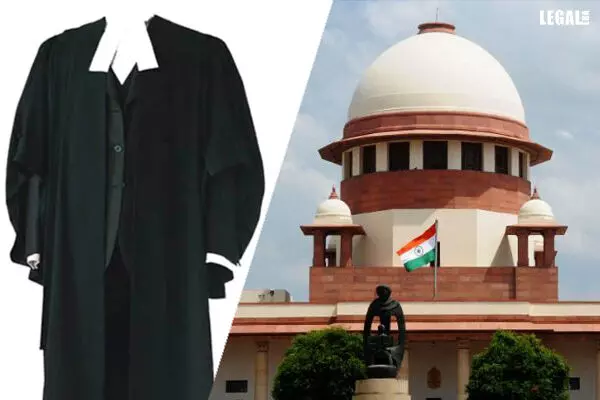- Home
- News
- Articles+
- Aerospace
- Artificial Intelligence
- Agriculture
- Alternate Dispute Resolution
- Arbitration & Mediation
- Banking and Finance
- Bankruptcy
- Book Review
- Bribery & Corruption
- Commercial Litigation
- Competition Law
- Conference Reports
- Consumer Products
- Contract
- Corporate Governance
- Corporate Law
- Covid-19
- Cryptocurrency
- Cybersecurity
- Data Protection
- Defence
- Digital Economy
- E-commerce
- Employment Law
- Energy and Natural Resources
- Entertainment and Sports Law
- Environmental Law
- Environmental, Social, and Governance
- Foreign Direct Investment
- Food and Beverage
- Gaming
- Health Care
- IBC Diaries
- In Focus
- Inclusion & Diversity
- Insurance Law
- Intellectual Property
- International Law
- IP & Tech Era
- Know the Law
- Labour Laws
- Law & Policy and Regulation
- Litigation
- Litigation Funding
- Manufacturing
- Mergers & Acquisitions
- NFTs
- Privacy
- Private Equity
- Project Finance
- Real Estate
- Risk and Compliance
- Student Corner
- Take On Board
- Tax
- Technology Media and Telecom
- Tributes
- Viewpoint
- Zoom In
- Law Firms
- In-House
- Rankings
- E-Magazine
- Legal Era TV
- Events
- Middle East
- Africa
- News
- Articles
- Aerospace
- Artificial Intelligence
- Agriculture
- Alternate Dispute Resolution
- Arbitration & Mediation
- Banking and Finance
- Bankruptcy
- Book Review
- Bribery & Corruption
- Commercial Litigation
- Competition Law
- Conference Reports
- Consumer Products
- Contract
- Corporate Governance
- Corporate Law
- Covid-19
- Cryptocurrency
- Cybersecurity
- Data Protection
- Defence
- Digital Economy
- E-commerce
- Employment Law
- Energy and Natural Resources
- Entertainment and Sports Law
- Environmental Law
- Environmental, Social, and Governance
- Foreign Direct Investment
- Food and Beverage
- Gaming
- Health Care
- IBC Diaries
- In Focus
- Inclusion & Diversity
- Insurance Law
- Intellectual Property
- International Law
- IP & Tech Era
- Know the Law
- Labour Laws
- Law & Policy and Regulation
- Litigation
- Litigation Funding
- Manufacturing
- Mergers & Acquisitions
- NFTs
- Privacy
- Private Equity
- Project Finance
- Real Estate
- Risk and Compliance
- Student Corner
- Take On Board
- Tax
- Technology Media and Telecom
- Tributes
- Viewpoint
- Zoom In
- Law Firms
- In-House
- Rankings
- E-Magazine
- Legal Era TV
- Events
- Middle East
- Africa
Supreme Court declines to hear lawyers' plea to relax dress code during summer

Supreme Court declines to hear lawyers' plea to relax dress code during summer
The Supreme Court suggested that the petitioner approach the Bar Council of India
The Supreme Court has refused to entertain a petition seeking relaxation of the dress code for lawyers during the summer season.
Shailendra Mani Tripathi vs Bar Council of India & Ors.
Appearing for the petitioner, senior advocate Vikas Singh pointed out that as the Supreme Court does not have air-conditioned corridors, wearing black gowns and coats has been an issue, especially in Delhi. He apprised the court that the lawyers were concerned about the practicality of the dress code.
However, the bench comprising Justice Indira Banerjee and Justice V Ramasubramanian questioned the petitioner as to how the plea could be entertained under Article 32 of the Constitution of India.
As an alternative, the court suggested the petitioner could approach the Bar Council of India (BCI) regarding his grievance.
The petitioner then withdrew his plea. Thereafter, the court clarified that if the BCI did not act upon his request, the petitioner was at liberty to approach the top court again.
In his petition, advocate Shailendra Mani Tripathi had sought an exemption for advocates from wearing black coats and gowns during the summer season in the Supreme Court and the high courts. He requested the court to direct the BCI to amend its rules in this regard.
The petitioner said that wearing coats and gowns in the torrid summer heat was unbearable while moving between District courts, the high courts, and the Supreme Court. Also, taking them off and carrying along was not always possible due to important files and other items being held in hand.
The petitioner's advocate argued that not all advocates practicing at the Supreme Court and the high courts were affluent to be able to afford air-conditioned vehicles to travel in. He submitted that an uncomfortable attire leads to decreased productivity due to uneasiness in walking through the court's premises. It also led to frustration and irritable behavior.
In addition, the coats and blazers imposed an unnecessary economic burden of maintenance due to excessive perspiration by the advocates, he said.



